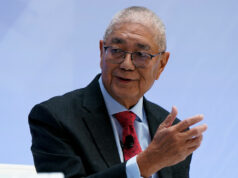Bill raising minimum age to buy cigarettes hurdles committee
THE House Joint Committee on Health and Trade and Industry approved the bill increasing the minimum age to buy tobacco products to 21 years from the current 18.
“They wanted to raise to 21 years old because the brain is still developing during the teenage years. Smoking negatively affects brain development,” Rep. Xavier Jesus D. Romualdo of Camiguin, Trade and Industry committee vice chair, told BusinessWorld over the phone.
The two House panels consolidated eight House Bills and one Resolution, all seeking to amend provisions of the Tobacco Regulation Act (TRA) of 2003.
The unnumbered Substitute Bill will also impose a total ban on advertising tobacco products and further expand the number of public places where smoking is prohibited.
Under the current TRA, tobacco companies are banned from promoting cigarettes through the mass media, but may advertise at the point of sale.
Mr. Romualdo said the Committees agreed to extend the advertisement ban to the point of sale. He noted that in lieu of displaying ads, establishments will be allowed to put up signs indicating the availability of tobacco products for purchase.
The Philippine Tobacco Institute, Inc. (PTI) said persons aged 18 years are “deemed qualified and responsible for all acts of civil life.”
The PTI also said in its position paper that the existing restriction on tobacco products advertisements is “already sufficient.”
The bill “unreasonably limits tobacco companies’ right to protected commercial speech, by extending the ban on all forms of tobacco advertisement, promotions, and sponsorships.”
The PTI said advertising at the point of sale allows companies to promote tobacco products to their target market, while still preventing exposure to unintended markets.
Health and children’s rights advocates supported the increase in the minimum age to buy cigarettes, in light of the increasing incidence of smoking among young people.
“This has been the trend in various jurisdictions and has been proven effective in preventing the initiation of youth to this deadly addiction,” they said in a joint position paper, signed by health advocacy groups that included Health Justice Philippines, Southeast Asia Tobacco Control Alliance and the Social Watch Philippines among others.
The groups also raised the need to provide a broad definition of “public places” to ensure smoke-free environment for Filipinos.
“Smoke-free places should be considered 100% smoke-free and smoking areas cannot be designated in these places,” they said in the joint position paper. — Charmaine A. Tadalan



